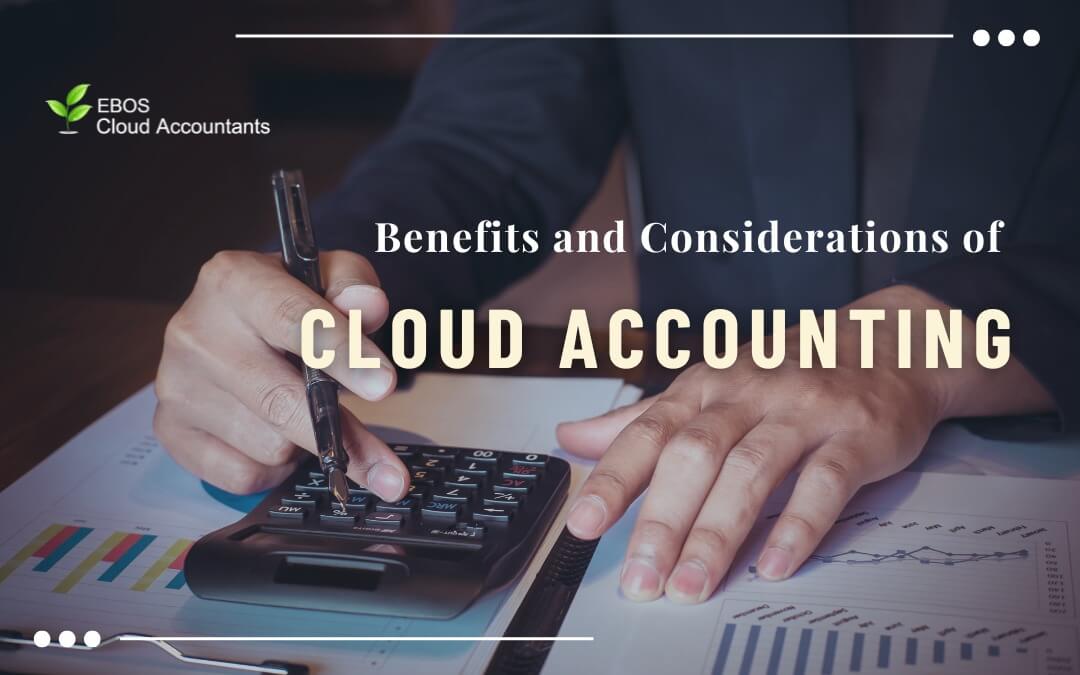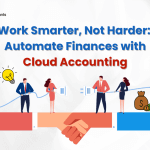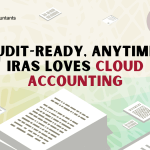Accounting is not an exception to how disruptive technologies have altered the landscape of many different businesses. A new strategy is needed for the traditional profession of bookkeeping when organizations move their accounting to the cloud.
Introduction
Cloud accounting, or the use of accounting software housed on distant servers, has the potential to completely transform how firms do their accounting operations, with advantages ranging from accessibility to increased efficiency.
Cloud accounting offers businesses several key benefits as shown below.
Accessibility
Users can use any internet-capable device to carry out accounting tasks such as posting accounting entries, bookkeeping, and invoicing whenever and wherever they want. Company owners or users from other offices or departments can also access accurate and timely financial data to make better business decisions.
Cost savings
With cloud accounting, consumers essentially pay for what they use, which results in decreased overhead costs. The fact that maintaining and updating the accounting system does not necessitate upfront investments in server infrastructure and IT personnel may be good news for small and medium-sized businesses. Instead, the solution provider deals with these.
Ease of integration
The majority of cloud accounting vendors give customers the option to incorporate additional third-party applications or solutions, such as point-of-sale systems, payroll management software, inventory management software, or payroll management, to supplement their accounting software and speed up business processes.
Greater efficiency
Cloud accounting can increase the efficiency of accounting processes by automating or simplifying routine tasks. For instance, some cloud accounting providers offer clever answers for jobs like bank reconciliation and automatic account coding based on users’ accounting entry descriptions.
Considerations when choosing cloud accounting solutions
Cloud accounting has drawbacks and is not a panacea for all accounting issues. You don’t want your organization to become unduly dependent on a solution that has a poor security or recovery strategy and could cause significant business disruptions. As a result, it’s critical to select a dependable vendor with a solid track record and assess its security policy, disaster recovery strategy, and readiness for cybersecurity incidents and power outages.
Conclusion:
Moving to a cloud-based accounting software system can improve efficiency and offer real-time visibility into financial performance, whether you’re a growing business or a multinational enterprise. There is a wide variety of cloud accounting programs that are easily accessible and cost-effective.
EBOS Cloud Accountants is one of the first Cloud Accountant providers in Singapore who are certified advisors to 4 Cloud Accounting software (Dashbod, Enterpryze, Financio, and Xero). Our expertise lies in Cloud Accounting, Cloud Corporate Secretary, Cloud ERP, Cloud HR, Cloud Inventory, and Cloud CRM; enabling you to incorporate comprehensive transaction data to ensure greater efficiency, accuracy, and control in every business decision, from sourcing to payments.
Contact EBOS SG at ask@ebos-sg.com to learn more about how you can start your cloud accounting journey with us!







